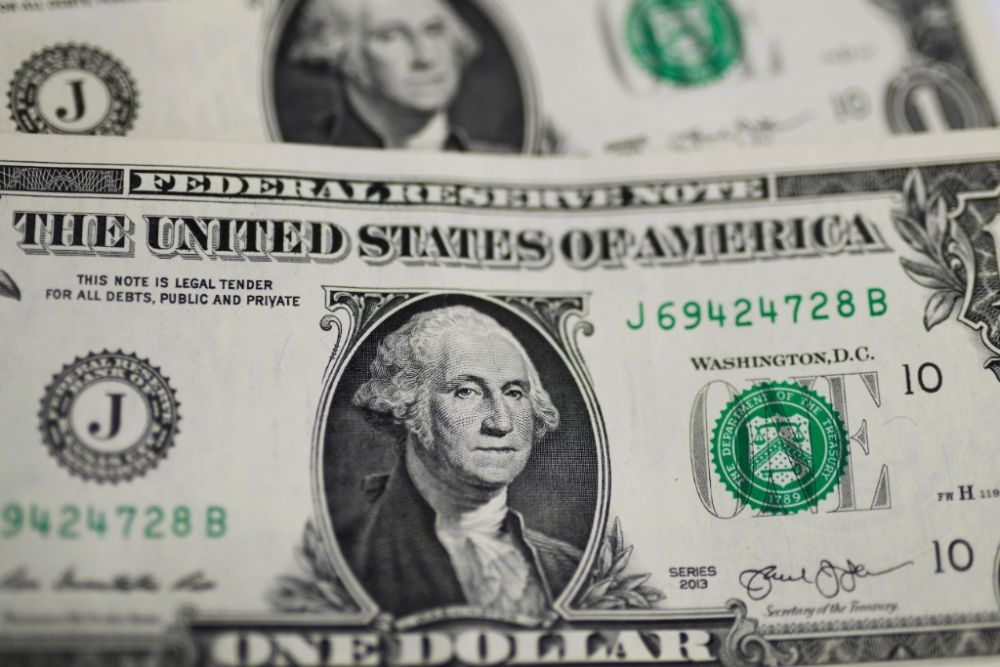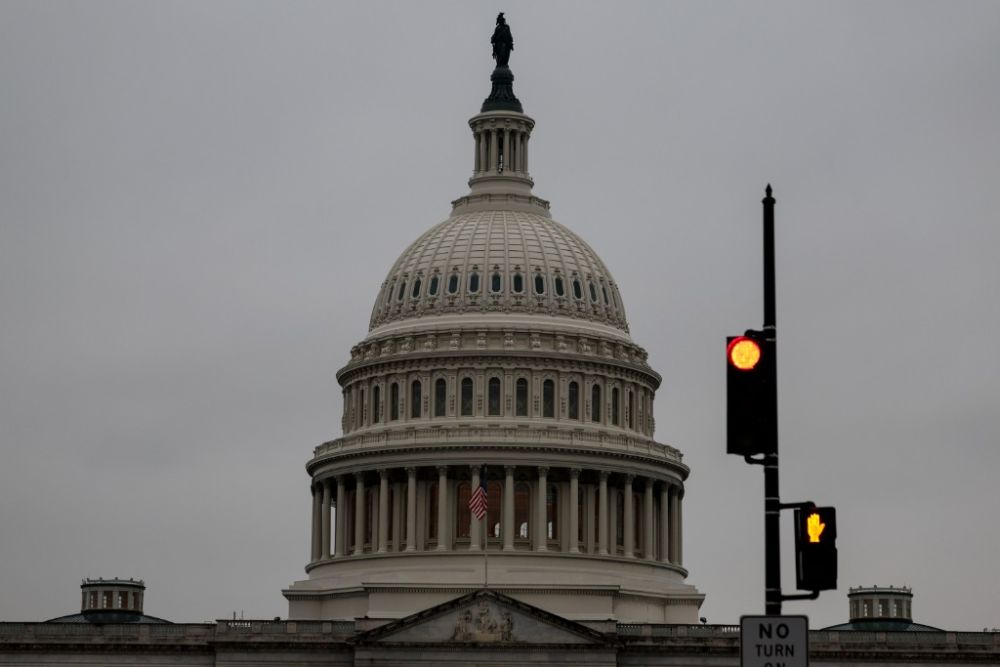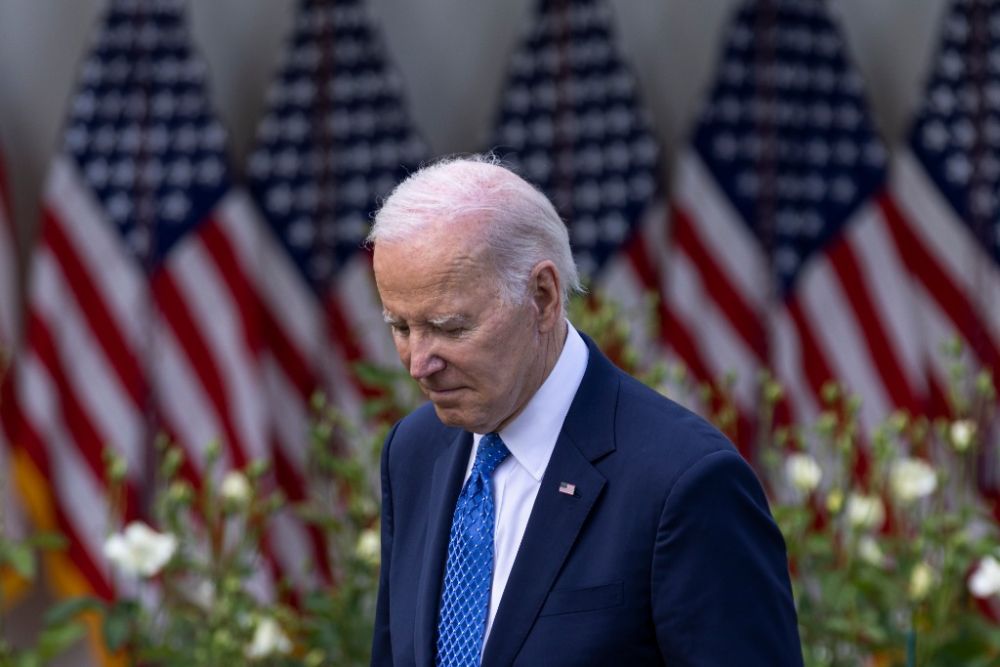Debt default approaches the White House’s calculation
Xinhua News Agency, Beijing, May 7-American sources disclosed on the 5th that with the approaching date of the federal government hitting the current legal debt ceiling of 31.4 trillion US dollars in June, the White House is considering pushing the Democratic Party and the Republican Party to reach a short-term agreement on temporarily raising the debt ceiling and maintaining it until September, so as to gain time for solving multiple problems such as the debt ceiling, but the relevant plan has not yet been finalized.
keep a way open for retreat
NBC News reported on May 5th that the White House has not yet decided to push the two parties in Congress to reach a short-term agreement, but it is still seeking to reach a long-term agreement. However, White House aides are discussing a series of alternatives to avoid economic disaster due to failure to find a solution by the end of May.

This is a US dollar bill taken in Washington, DC on September 18, 2019. Xinhua News Agency reporter Liu Jie photo
One of them will invoke the 14th Amendment to the US Constitution. During the debt ceiling crisis in 2011, some people cited the fourth paragraph of the 14th Amendment, arguing that the debt ceiling would be invalid because it was unconstitutional as long as it interfered with the federal government’s debt repayment, and the president had the right to unilaterally raise or ignore the debt ceiling. However, this statement is legally controversial.
The debt ceiling is the maximum amount that the US Congress sets for the federal government to borrow to fulfill the payment obligations it has already incurred. Touching this "red line" means that the US Treasury Department’s borrowing authorization is exhausted, and unless Congress raises the debt ceiling, the White House has no right to continue borrowing.
According to two people familiar with the matter, the White House is considering pushing the Democratic and Republican parties in Congress to reach an agreement on raising the debt ceiling until September, so as to gain several months for the two sides to conduct more comprehensive negotiations on federal government expenditures, and the relevant time period coincides with the end of the fiscal year in Japan on September 30, and the two sides may negotiate the federal government budget for the next fiscal year together.

This is the capitol in Washington, DC, on January 19th. Xinhua News Agency (photo by Shen Ting)
According to the statistics of the American Chamber of Commerce, since 1993, the United States has temporarily raised the debt ceiling six times, all of which are aimed at gaining time for negotiating a broader plan.
A private sector executive who has regular contact with the government said: "The White House may not push for short-term agreements, but they don’t need more drama and uncertainty in the economy. The economy is now on the verge. "
The data shows that the real GDP of the United States increased by only 1.1% at an annual rate in the first quarter of this year. Some analysts infer that the debt ceiling crisis superimposed on the Federal Reserve’s aggressive interest rate hike may trigger the US economic recession. The White House Council of Economic Advisers predicted this week that if the debt ceiling negotiations are delayed to the deadline, the US economy may shrink by 0.3%.
Regarding the prospect of the Republican Party’s acceptance of the short-term agreement, NBC News said that unless the two parties talk about more results on the debt ceiling, the short-term agreement "may not be helpful."

On April 24th, US President Biden attended the event at the White House in Washington, DC. Xinhua News Agency (photo by Aaron)
Start negotiations
At present, the Democratic and Republican parties are still tearing at the debt ceiling. Republicans insist that raising the debt ceiling must be based on a substantial reduction in federal government spending, while Democrats say that the debt ceiling should be raised unconditionally.
On April 26th, the House of Representatives passed a bill put forward by the Republican Party, aiming at the government of Democratic President joseph robinette to promote many policies involving economic, social, people’s livelihood and other fields. On the premise of reducing federal government spending by 4.5 trillion US dollars in 10 years, the bill proposes to suspend the debt ceiling at 31.4 trillion US dollars by March 31 next year; If the two parties can agree to raise the debt ceiling by another $1.5 trillion before this time limit, this time limit will be invalid.
The US Treasury Department has used "unconventional measures" to avoid debt default since January 19th this year. Finance Minister janet yellen warned that at the current rate of borrowing by the federal government, the current statutory debt ceiling could be reached as early as June 1st. Biden has invited the leader of the Democratic Party, Speaker of the House of Representatives, Republican Kevin McCarthy and Republican leader of the Senate, Mitch McConnell, to the White House for talks on the debt ceiling on the 9th of this month.

On May 3, US Federal Reserve Chairman Powell attended a press conference in Washington. The US Federal Reserve ended its two-day monetary policy meeting on the 3rd and announced that it would raise the target range of the federal funds rate by 25 basis points to 5% to 5.25% again. Xinhua News Agency reporter Liu Jie photo
According to NBC News, the White House’s current public position is still to seek a long-term agreement, and intends to promote the "two-track process", that is, to separate government spending from the debt ceiling.
Biden once again criticized the hard-line conservatives in the Republican Party on the 5th, saying that they pushed for "severe" government spending cuts and did not agree to directly raise the debt ceiling, while the United States "the last thing it needs is a man-made crisis". Reuters said that this shows that the White House will not compromise significantly when it meets on the 9th.
However, according to people familiar with the two parties, the closer the deadline is, the more likely it is to persuade the other party to make concessions.
Dasti Johnson, McCarthy’s close friend and chairman of the moderate "Main Street Caucus" of the Republican Party in the House of Representatives, hinted that if the White House "understood our values", that is, the conditions for spending cuts proposed by the Republican Party, "they would find Republicans willing to listen". (ocean)